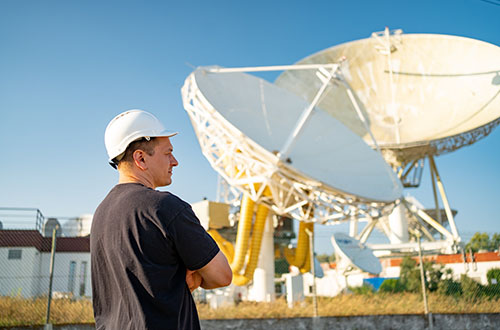

Navigating Cloud-Native Modernization with AI-Powered Migration

The mLogica Migration Team
Transforming Legacy Systems with mLogica’s LIBER*M Suite
Cloud-native modernization is revolutionizing how organizations build, deploy, and scale applications, delivering unmatched agility, resilience, and innovation. By adopting containers, microservices, and AI-powered migration technologies, businesses can overcome the limitations of legacy systems and swiftly transition to cloud environments. mLogica’s LIBER*M suite, a state-of-the-art AI-driven migration platform, is at the forefront of this transformation, automating and accelerating the replatforming and refactoring of legacy systems to modern cloud architectures. This blog explores the trends, strategies, and challenges of cloud-native modernization, spotlighting how mLogica’s LIBER*M delivers measurable business value and positions enterprises for sustained success.
The Imperative for Modernization
Legacy systems, often rooted in outdated mainframes or monolithic architectures, are costly, inflexible, and ill-suited to today’s fast-paced business demands. These systems stifle innovation, delay market delivery, and escalate operational costs. Cloud-native architectures, powered by Kubernetes, microservices, and serverless frameworks, offer scalability, flexibility, and rapid deployment capabilities. However, migrating from legacy to cloud-native platforms is a complex endeavor. mLogica’s LIBER*M suite addresses this challenge head-on, leveraging AI to automate critical tasks like converting Assembler and COBOL to Java and migrating databases such as Db2 (and others) to PostgreSQL. This ensures seamless compatibility with cloud platforms like AWS, GCP, Microsoft Azure, and Oracle OCI, preserving business logic while enabling integration with modern ecosystems.
Key trends underscore the urgency of modernization. Platform engineering simplifies Kubernetes complexities through internal developer platforms (IDPs), boosting developer onboarding by 40% and deployment frequency by 35%. AI and machine learning integration drives cloud-native adoption, enabling scalable AI workloads on Kubernetes. Observability ensures robust system monitoring, while cost management tools address Kubernetes-related expenses. Serverless frameworks support event-driven workloads, enhancing modernization. mLogica’s LIBER*M suite amplifies these trends, acting as a catalyst for rapid, AI-powered cloud adoption by streamlining replatforming and refactoring processes.
mLogica’s LIBER*M is the Pinnacle of Migration Technology
mLogica’s LIBER*M suite redefines cloud-native modernization by automating the replatforming and refactoring of legacy applications with unparalleled precision. This AI-driven platform transforms complex legacy environments, converting mainframe code like Assembler and COBOL into modern languages such as Java and migrating databases like Db2 to cloud-native systems like PostgreSQL. LIBER*M ensures seamless integration with Kubernetes architectures and observability standards, enabling businesses to fully embrace cloud-native ecosystems. By automating these processes, LIBER*M minimizes manual effort, reduces errors, and accelerates modernization timelines, transforming rigid, costly mainframes into agile, scalable cloud platforms.
Unlike narrower tools, LIBER*M offers a comprehensive solution, tackling the full range of migration challenges. It supports multi-cloud strategies across platforms like AWS, GCP, Azure, and Oracle OCI, ensuring portability and scalability. LIBER*M’s AI-driven refactoring preserves critical business logic, enabling faster time-to-market and significant cost reductions. For example, organizations using LIBER*M have slashed mainframe operational costs while adopting cloud-native architectures. Its integration with observability frameworks enhances system performance and security, making LIBER*M an indispensable tool for enterprises seeking to modernize. mLogica’s leadership in AI-powered migration positions LIBER*M as the gold standard for transforming legacy systems into future-ready platforms.
Strategies for Success
Successful cloud-native modernization hinges on strategic integration of mLogica’s LIBER*M suite with industry best practices. Organizations should assess legacy applications using LIBER*M’s AI-powered tools for automated discovery and migration planning, creating a phased roadmap aligned with business goals. Adopting DevOps and Site Reliability Engineering (SRE) practices is essential, refactoring monoliths into microservices, deploying via CI/CD pipelines, and embedding DevSecOps for automated security ensure secure, resilient systems. LIBER*M’s automation aligns with these practices, enabling seamless transitions to cloud-native platforms and maximizing efficiency.
Expertise is critical, as cloud-native technologies like Kubernetes require specialized skills. Partnering with mLogica not only leverages LIBER*M’s automation but also facilitates knowledge transfer, empowering internal teams to manage modernized systems. Cost management is vital, LIBER*M’s migrations eliminate expensive mainframe dependencies, delivering substantial savings while supporting scalability across multi-cloud environments. Modernization must prioritize measurable outcomes, such as faster feature delivery, enhanced uptime, and cost efficiency. LIBER*M has enabled organizations to achieve significant mainframe cost reductions and accelerated market delivery, delivering clear ROI through AI-powered replatforming and refactoring.
Overcoming Modernization Challenges
Cloud-native modernization poses challenges, but mLogica’s LIBER*M suite provides robust solutions. Kubernetes and microservices complexity, a barrier for 75% of organizations due to skill gaps, is simplified by LIBER*M’s automated migration processes, allowing teams to focus on innovation rather than infrastructure. Cost overruns from autoscaling are mitigated by LIBER*M’s elimination of mainframe dependencies, ensuring long-term savings and cloud cost efficiency. Security in distributed systems is critical, as expanded attack surfaces increase risks. LIBER*M’s secure migration processes embed zero-trust principles, safeguarding modernized systems from day one.
Cultural resistance to DevOps and automation, common in traditional IT environments, can hinder progress. mLogica-led pilot projects using LIBER*M demonstrate transformative value, fostering enterprise-wide adoption. By leveraging LIBER*M’s AI-powered replatforming and refactoring, organizations confidently navigate modernization complexities, achieving agile, secure, and cost-effective cloud-native architectures.
A Real-World Success Story
A UK retailer’s transformation highlights the power of mLogica’s LIBER*M suite. Grappling with a costly IBM z/OS mainframe running ASM, COBOL, and Db2, the retailer faced escalating costs and limited scalability. Partnering with mLogica, they utilized LIBER*M to automate code conversion to Java and migrate databases to PostgreSQL on GCP. Executed remotely with zero disruption, the migration delivered significant cost savings, enhanced scalability, and improved integration capabilities, positioning the retailer for future growth and showcasing LIBER*M’s ability to replatform and refactor legacy systems into agile, cloud-native architectures.
AI-Powered Modernization is Leading the Way
mLogica’s LIBER*M suite is the cornerstone of cloud-native modernization, empowering organizations to transform legacy systems into scalable, cloud-native architectures. Its AI-driven replatforming and refactoring deliver measurable outcomes, including reduced costs, faster market delivery, and enhanced resilience. By integrating strategic planning and mLogica’s expertise, businesses overcome complexity and accelerate cloud adoption. As enterprises navigate a competitive landscape, those harnessing LIBER*M’s AI-powered migration technology will lead, achieving lasting business value and future-ready systems.








































